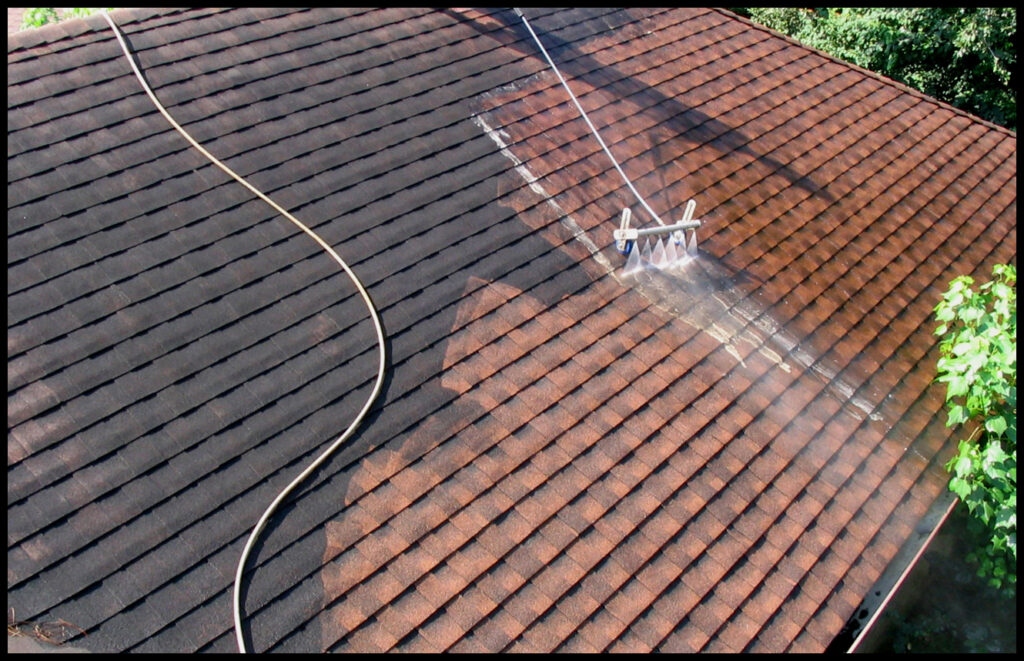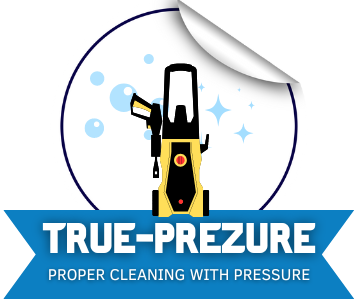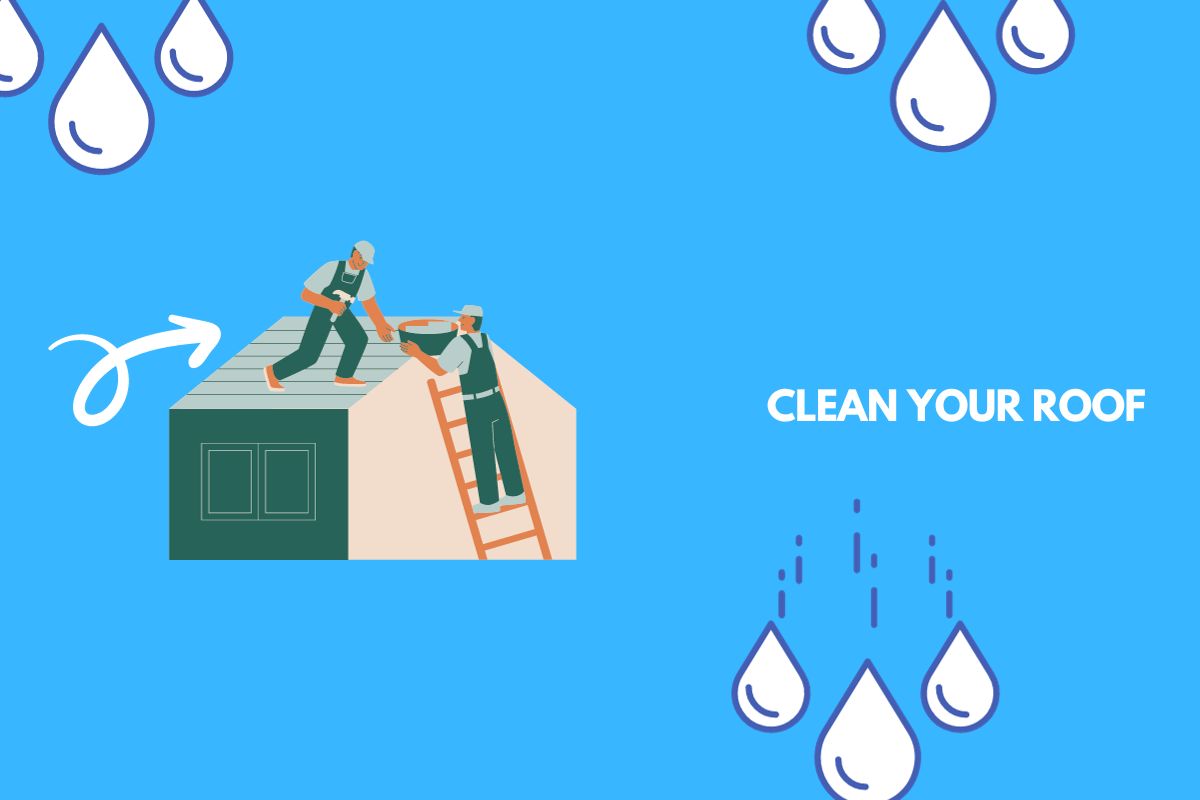Are you tired of looking up at your roof and seeing unsightly stains, mold or moss growth?
Cleaning your roof tiles is an essential part of home maintenance that can improve the look and lifespan of your roof. However, using a pressure washer can cause damage to some types of roofing materials.
Don’t worry! In this article, we’ll provide you with a complete guide on how to clean your roof tiles without a pressure washer. Keep reading to learn about the safest methods for cleaning your roof while protecting its integrity and beauty.
The Basics of Roof Tile Cleaning
Cleaning your roof tiles may seem like a daunting task, but it’s an important part of maintaining the overall health of your home. The first thing you need to do is assess the condition of your roof to determine what type of cleaning method would be best.
One basic principle that applies to all types of roofs is safety. It’s important to use proper equipment and take precautions when working at heights. Always wear non-slip shoes, use a sturdy ladder with stabilizers, and have someone on hand to help if needed.
Another key consideration is the type of roofing material you have. Different materials require different cleaning methods; for example, asphalt shingles can be damaged by high-pressure washing while metal roofs are more durable and can withstand more forceful cleaning techniques.
In addition to these factors, you’ll also need to consider any stains or debris that may be present on your roof. Moss and algae growth are common issues in humid climates, while tree branches or leaves might accumulate on flat roofs.
By understanding the basics of roof tile cleaning and assessing these individual factors unique to you.
If you’re still not sure how to proceed with cleaning your roof tiles, contact a professional roofing contractor for guidance. They will be able to provide you with a professional opinion and help determine the best course of action.
Finally, always remember to clean your roof tiles regularly. This will ensure that your roof remains in good condition for many years to come.
Remember, cleaning your roof tiles is an important part of maintaining the overall health of your home. With proper precautions and careful planning, you can keep your roof in top condition for years to come.
Why Should You Clean Your Roof?
Your roof is the first line of defense against harsh weather conditions, and it takes a beating day in and day out. Over time, dirt, debris, moss, algae, and other substances accumulate on the roof tiles causing potential damage.
These substances can trap moisture leading to mold growth that weakens your roofing material. Additionally, they can discolor your roof shingles or tiles making them look worn-out and unattractive.
A dirty roof also reduces energy efficiency by trapping heat inside the house during summer months which increases cooling costs. Cleaning your roof periodically not only enhances its curb appeal but also extends its lifespan saving you money on costly repairs.
Furthermore, maintaining a clean roof improves air quality since dirty roofs are breeding grounds for bacteria that can cause respiratory problems when inhaled over an extended period.

In summary, cleaning your roof isn’t just about aesthetics but is essential for preserving the structural integrity of your home while improving indoor air quality.
Therefore, if you care about maintaining the value of your property and protecting your family’s health, then it is wise to clean your roof regularly.
How Do I Clean My Roof Without A Pressure Washer?
Cleaning your roof without a pressure washer may seem daunting, but it’s actually quite simple. The first step is to assess the type of material your roof is made from. Different materials require different cleaning techniques and solutions.
For example, if you have a metal or asphalt shingle roof, you can use a mixture of water and mild soap to clean off any dirt or stains. Simply scrub the solution onto the affected areas with a soft-bristled brush, then rinse thoroughly with water.
If you have a tile or slate roof, using high-pressure equipment could potentially damage the tiles. Instead, opt for low-pressure washing or manually cleaning with a soft-bristled brush and gentle cleanser.
When it comes to safety precautions, always wear protective gear such as non-slip shoes and gloves when climbing on your roof. Additionally, make sure that someone else is aware of what you’re doing in case of an emergency.
Remember that regular maintenance can help prevent buildup and prolong the lifespan of your roof. With these tips in mind, you’ll be able to keep your roof looking pristine without ever having to resort to pressure washing!
What Is The Safest Way To Clean A Roof?
When it comes to cleaning your roof, safety should be a top priority. You don’t want to risk injuring yourself or damaging your roof in the process. So, what is the safest way to clean a roof?
First and foremost, you should always wear protective gear such as gloves, goggles and non-slip shoes. This will help prevent any injuries from slips or falls.
Next, choose a cleaning solution that is safe for both your particular type of roofing material and the environment. Avoid harsh chemicals that can cause damage to your shingles or harm nearby plant life.
Another important factor in safe roof cleaning is using the right tools for the job. A long-handled scrub brush with soft bristles is ideal for gently removing dirt and debris without causing damage.
Never attempt to clean your entire roof at once – break up the task into smaller sections so you don’t become overwhelmed or lose focus on safety precautions.
By following these guidelines, you can safely clean your roof without putting yourself or your property at risk.
Low-Pressure Vs. No-Pressure Roof Cleaning
When it comes to cleaning your roof tiles, you have several options. One of the most popular methods is using a pressure washer. However, this method can be dangerous and potentially damaging to your roof tiles. Luckily, there are two safer alternatives: low-pressure and no-pressure roof cleaning.
Low-pressure roof cleaning involves using a pressure washer with a lower PSI (pounds per square inch) setting than normal. This reduces the risk of damage to your tiles but still provides enough force to remove dirt and debris. It’s important to note that while low-pressure cleaning is safer than regular pressure washing, it may not be suitable for all types of roofs.
No-pressure roof cleaning uses a chemical solution applied directly onto the surface of the tiles without any additional water or force involved. The chemicals break down dirt and grime over time, allowing it to be easily rinsed away with rainfall or light water spray from a garden hose.
Both methods have their pros and cons depending on the type of roofing material you have installed on your home. Consulting with professional cleaners who specialize in each method can help determine which one is best suited for your specific needs at an affordable price point without causing any damages whatsoever!
Is No-Pressure Roof Cleaning Safe for All Roof Types?
When it comes to cleaning a roof without a pressure washer, many people wonder if the no-pressure method is safe for all types of roofs. The answer is not straightforward as there are several factors to consider.
Firstly, the age and condition of the roof play a significant role in determining its safety during no-pressure cleaning. If your roof is relatively new and well-maintained, it should be able to withstand this type of cleaning without any damage. However, if your roof is old or has pre-existing issues such as cracks or leaks, it may not be suitable for this method.
Secondly, different roofing materials have varying levels of durability that need to be considered before deciding on whether or not to use no-pressure cleaning. For example, asphalt shingles are more fragile than metal roofing and may require extra caution during the cleaning process.
Hiring a professional who has experience in using no-pressure methods can ensure that your roof remains intact while being cleaned thoroughly. A skilled technician will know how much pressure needs to be applied based on the type of material used on your roof.
In summary, although no-pressure washing can be an effective way to clean most roofs safely with proper care and attention from professionals who understand what they’re doing!
DIY vs Hiring a Professional
When it comes to cleaning your roof tiles, you may be wondering whether to tackle the job yourself or hire a professional. There are advantages and disadvantages to both options.
DIY cleaning can save money, but it also requires time, effort and skill. You will need to purchase or rent equipment such as safety gear, ladder stabilizers and chemical cleaners. Additionally, climbing on a roof can be dangerous if you’re not experienced in doing so.
Hiring a professional takes the burden of responsibility off of you. They will come equipped with the necessary tools and experience needed for safe and efficient cleaning. However, this option is more costly than doing it yourself.
Ultimately, the decision depends on your own level of comfort with DIY projects and risk-taking behaviors. If you have experience working on roofs safely and confidently then DIY might be feasible for you but if not hiring professionals would be best advised for ensuring safety while getting an excellent result out of their services!
Overall, it is important to take into consideration all of the pros and cons before making your decision.
Final Thoughts
Roof tile cleaning is an essential task that should be performed regularly to keep your roof in good condition. While pressure washing can be a quick and effective method, it’s not always the safest option for all types of roofs. Luckily, there are several alternative methods you can use to clean your roof tiles without a pressure washer.
Whether you choose to do it yourself or hire a professional, make sure you follow safety guidelines such as using appropriate protective gear and avoiding walking on steep roofs without proper equipment. Always prioritize safety over speed when cleaning your roof.
By following the tips outlined in this guide, you’ll be able to effectively clean your roof tiles without damaging them or posing any risks to yourself. With regular maintenance and cleaning, your roof will remain in top condition for years to come!
Faq
What is the best thing to clean roof tiles?
When it comes to cleaning roof tiles, many people think of using a pressure washer. However, there are other effective ways to clean your tiles without causing any damage. The best thing for cleaning roof tiles depends on the type of tile you have.
For clay or ceramic tiles, a mixture of water and mild dish soap is an excellent option. You can use a soft-bristled brush or sponge to scrub away any dirt or moss gently. Alternatively, white vinegar mixed with water can also be used as a natural and inexpensive cleaner.
Concrete roofs may require more heavy-duty solutions due to their porous nature. Oxalic acid diluted in hot water is an effective option for removing stubborn stains such as rust and mineral deposits. Be sure to wear protective gloves and eyewear when working with oxalic acid.
In general, avoid harsh chemicals like bleach as they can cause discoloration and damage over time.
Now that you know what the best cleaners are for each type of roofing material let’s move on to how exactly we should go about cleaning them effectively!
What is the best way to clean concrete roof tiles?
Concrete roof tiles are a popular and durable option for many homeowners. However, just like any other roofing material, they need regular cleaning to maintain their appearance and structural integrity. The best way to clean concrete roof tiles is by using a combination of water and a non-toxic cleaning solution.
Firstly, start by removing debris from the surface of your roof with a soft-bristled broom or leaf blower. This will prevent any dirt or leaves from getting stuck in the cleaning solution during the process.
Next, mix warm water with a small amount of mild detergent or vinegar in a bucket. Avoid using harsh chemicals that can damage your roof tiles.
Apply the cleaning solution onto your concrete roof tiles using either a low-pressure sprayer or brush. Be gentle when scrubbing to avoid damaging the tile’s surface.
Once you have applied the solution, rinse off all traces of it with clear water using a garden hose or pressure washer on its lowest setting.
Allow your concrete roof tiles to dry completely before inspecting them for any remaining dirt spots that may require further treatment.
By following these simple steps regularly on how to clean concrete roof tiles without causing damage, you can keep your roofing looking brand new while extending its lifespan at an affordable cost!
Should you clean your roof tiles?
It’s a question every homeowner with roof tiles has probably asked themselves at some point: should I clean my roof tiles? The answer is yes, you should. Here are a few reasons why:
Firstly, cleaning your roof tiles helps to prolong their lifespan. Over time, dirt and debris can build up on your tiles and cause damage if left unchecked. A good cleaning will remove this buildup and prevent any potential damage.
Secondly, regular cleaning can prevent moss and algae from growing on your roof. These organisms thrive in damp environments, so it’s important to keep your roof dry and free of debris to deter them from taking hold.
Having clean roof tiles can improve the overall appearance of your home. A dirty or stained roof can detract from the curb appeal of your property, while a sparkling clean one will make it look fresh and well-maintained.
In short, there are plenty of good reasons to clean your roof tiles regularly. It may require some effort on your part or the help of professionals but it’s worth doing to protect both the structure and aesthetic value of your home.
How do professionals clean roof tiles?
In summary, cleaning roof tiles without a pressure washer is not only possible but also effective. Using the methods and tools outlined in this guide, you can get rid of dirt, grime, moss, and other debris on your roof tiles while avoiding causing any damage to them.
However, if you are unsure about doing it yourself or want to ensure that your roof is cleaned thoroughly by professionals using specialized equipment and techniques, then you can always hire a roofing company for the job.
Professional roofers have access to high-quality cleaning agents and pressure washers that can clean even the toughest of stains without damaging your tiles. They also have vast experience in working with different types of roofs and will know how to handle specific issues effectively.
Remember that regular maintenance is key when it comes to extending the lifespan of your roof. So don’t wait until it’s too late before giving your rooftop some much-needed TLC!

